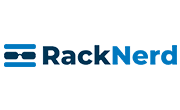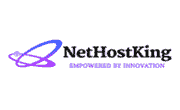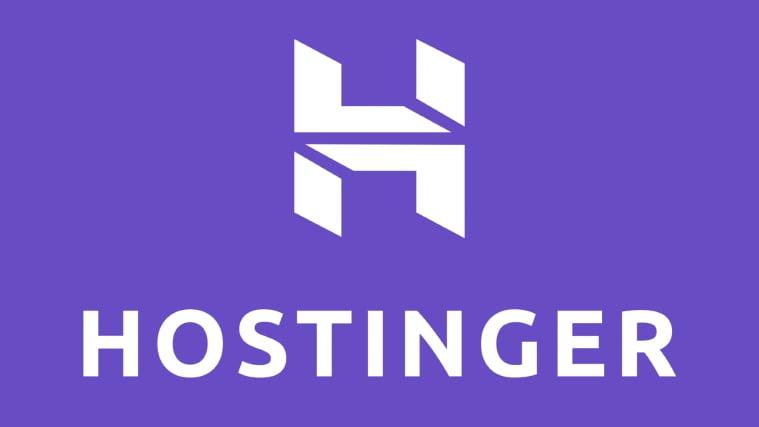In today’s digital landscape, the need for a strong online presence has never been more critical. A high-performing website is the backbone of any modern business, and web hosting services are the foundation upon which that backbone is built. But with so many options available—ranging from shared hosting to virtual private servers (VPS), dedicated hosting, and cloud solutions—navigating the world of web hosting can feel overwhelming. Whether you’re launching a personal blog, an e-commerce store, or a corporate website, understanding the nuances of different web hosting types and what each provider offers is key to making an informed decision.
Choosing the right web hosting service can be the difference between a seamless, high-speed online experience and a sluggish site that drives visitors away. In this article, we’ll take a deep dive into web hosting services, exploring everything from types of hosting plans and features to look for, to comparing some of the industry’s leading providers. By the end of this guide, you’ll have the insights needed to select the best hosting solution for your specific needs, ensuring that your website is secure, fast, and optimized for success.
What Is Web Hosting?
Web hosting is the process of storing a website’s files on a server, allowing it to be accessed on the internet. Without web hosting, your website’s content would remain inaccessible to the world. In simple terms, web hosting providers offer the storage space and technical infrastructure that websites need to operate. When a user types in your website’s URL, the hosting server delivers the files to their browser, allowing them to interact with your site.
Types of Web Hosting Services
The type of web hosting you choose can significantly impact your site’s performance, security, and scalability. Let’s explore the primary types of web hosting:
Shared Hosting
Shared hosting is the most budget-friendly option and involves multiple websites sharing the same server resources, such as CPU, RAM, and storage. This option is best suited for small websites or personal blogs with low traffic. However, sharing resources means that if one site on the server experiences a spike in traffic, it can affect the performance of other sites.
- Pros: Affordable, easy to set up, and user-friendly.
- Cons: Limited resources, potential for slower speeds, and security risks from other users on the server.
VPS Hosting (Virtual Private Server)
VPS hosting provides a dedicated virtual space within a shared server, offering more control and stability than traditional shared hosting. Each VPS operates independently, so your website’s performance is less likely to be affected by others on the same server. This option is ideal for growing websites that require more resources than shared hosting can offer.
- Pros: Greater control, enhanced security, and better performance.
- Cons: More expensive than shared hosting, requires technical knowledge.
Dedicated Hosting
With dedicated hosting, you rent an entire server solely for your website. This solution provides the highest level of control, performance, and security, making it ideal for large websites with high traffic. Dedicated hosting is more expensive, but it offers unparalleled customization options.
- Pros: Full server control, maximum security, and optimal performance.
- Cons: High cost, requires technical expertise to manage the server.
Cloud Hosting
Cloud hosting is a scalable solution where your website is hosted on multiple servers, allowing it to draw resources as needed. This type of hosting is highly reliable because if one server fails, another can take over seamlessly. Cloud hosting is well-suited for businesses with fluctuating traffic levels or those needing flexible resources.
- Pros: Scalability, reliability, and pay-as-you-go pricing.
- Cons: Pricing can be complex, and technical knowledge may be needed for advanced configurations.
Key Features to Consider in a Web Hosting Provider
When selecting a web hosting provider, it’s essential to assess their features to ensure they meet your website’s requirements. Here are some critical features to evaluate:
Performance and Uptime
A website’s speed and uptime are crucial for providing a positive user experience. Look for a hosting provider that guarantees at least 99.9% uptime, ensuring your website is available around the clock. Additionally, check for fast loading times, as slow websites can drive users away.
Security Features
Security should be a top priority, especially if you’re handling sensitive data or running an e-commerce website. Key security features include SSL certificates, firewalls, malware scanning, and DDoS protection. Some hosting providers also offer automatic backups to safeguard your data in case of an unexpected event.
Storage and Bandwidth
Depending on your website’s needs, you may require more or less storage and bandwidth. Some providers offer unlimited storage and bandwidth, but this often comes with limitations on fair usage. Assess your site’s requirements to choose a provider that meets your storage needs without overspending.
Customer Support
Reliable customer support is invaluable, especially if you’re new to web hosting or run into issues. Look for providers offering 24/7 support via live chat, phone, or email. Some hosting companies even provide dedicated account managers for high-tier plans, ensuring you always have someone to turn to.
Scalability
As your website grows, so will its hosting needs. Opt for a hosting provider that allows you to upgrade your plan easily or switch to a different hosting type. Scalability ensures you won’t need to migrate to a new provider if your site experiences significant growth.
Control Panel
A user-friendly control panel (such as cPanel or Plesk) is essential for managing your hosting account, setting up email accounts, and configuring domains. An intuitive control panel can make the setup and maintenance of your website much easier.
Pricing
Pricing varies widely across different hosting providers and plans. While budget is a crucial consideration, avoid choosing a provider solely based on cost. Instead, focus on finding a provider that offers value for money through a balance of features and pricing.
Top Web Hosting Providers: In-Depth Comparison
Choosing the right web hosting provider can be a game-changer for your website’s performance, security, and scalability. Here, we delve into some of the industry’s leading hosting providers, examining their features, pros and cons, and which types of websites they’re best suited for. From affordable shared hosting options to robust dedicated servers, this comparison will guide you to the ideal host based on your needs.
Liquid Web
Liquid Web is a highly reputable web hosting provider specializing in managed hosting solutions tailored for businesses and professionals who need top-notch performance, reliability, and support. Known for its exceptional customer service and powerful infrastructure, Liquid Web is an excellent choice for e-commerce sites, agencies, and businesses requiring high-performance hosting with minimal downtime.
Key Features of Liquid Web
- Fully Managed Hosting: Liquid Web takes care of server management, including security, updates, and backups, allowing you to focus solely on your business.
- 99.999% Uptime Guarantee: With an industry-leading uptime promise, Liquid Web ensures that your website remains online and accessible at all times, which is essential for businesses that cannot afford downtime.
- Advanced Security Measures: Liquid Web includes DDoS protection, integrated firewalls, and SSL certificates, providing an extremely secure hosting environment.
- High-Performance Hosting: The provider uses high-quality hardware and network infrastructure, delivering fast load times and reliable performance for even the most resource-intensive websites.
- Excellent Customer Support: Liquid Web offers 24/7 support from expert technicians who specialize in managing and troubleshooting high-performance hosting environments.
Types of Hosting Plans Offered by Liquid Web
- Managed WordPress Hosting: Perfect for WordPress sites that need optimized performance and security, with automatic updates and staging environments for testing.
- Managed WooCommerce Hosting: Tailored for WooCommerce stores, this plan includes features designed to enhance speed and streamline e-commerce operations.
- VPS Hosting: Liquid Web’s VPS hosting provides a high-performance environment with dedicated resources and root access for full control.
- Dedicated Hosting: Offering the most power and customization, dedicated hosting is ideal for high-traffic sites and those with specific security requirements.
Pros and Cons of Liquid Web
- Pros:
- Reliable and high-performance hosting for demanding websites.
- Outstanding uptime and site speed, enhancing user experience and SEO.
- Full server management, which includes monitoring, security, and regular backups.
- Scalable hosting options that grow with your business.
- Cons:
- Higher price range compared to standard hosting providers, reflecting its premium features.
- Not suitable for small personal websites or low-budget projects, as it caters primarily to businesses and professionals.
Liquid Web is best suited for businesses looking for a robust, managed hosting environment with top-tier support and a strong emphasis on security and performance. If you prioritize quality, control, and reliability, Liquid Web offers a dependable platform that can scale alongside your business’s needs.
Dedicated.com: A Closer Look at Dedicated Hosting Solutions
Dedicated.com is a prominent provider known for its dedicated hosting solutions designed for businesses that require top-tier performance, security, and control. Specializing in high-performance dedicated servers, Dedicated.com caters to enterprises and large websites that demand reliable resources, customizable configurations, and round-the-clock support.
Key Features of Dedicated.com
- Fully Dedicated Resources: Dedicated.com offers fully isolated resources, meaning you don’t share server resources with other websites, ensuring optimal performance at all times.
- Customizable Server Options: Their hosting plans are highly customizable, allowing you to select specific hardware and software configurations tailored to your unique needs.
- Advanced Security: With DDoS protection, firewalls, and regular monitoring, Dedicated.com prioritizes security to protect your site from threats.
- 24/7 Expert Support: Dedicated.com’s support team is available 24/7, offering prompt assistance via phone, chat, or email. This ensures you always have help at hand, even during high-traffic events or technical issues.
- Global Data Centers: The company has multiple data centers across North America, Europe, and Asia, enabling you to choose a location close to your target audience to reduce latency and improve speed.
Pros and Cons of Using Dedicated.com
- Pros:
- Excellent for high-traffic websites and resource-intensive applications.
- Highly customizable plans and server configurations.
- Strong security protocols and high reliability.
- Cons:
- Higher cost than other hosting types, as expected with dedicated hosting.
- May require advanced technical knowledge for server setup and maintenance.
Who Should Use Dedicated.com?
Dedicated.com is ideal for large businesses, e-commerce websites, and mission-critical applications where performance, reliability, and security are paramount. It’s also suited for companies with high traffic levels or complex, resource-heavy applications that demand dedicated server resources.
For businesses looking for robust and customizable dedicated hosting, Dedicated.com provides a comprehensive solution that’s well worth the investment. With flexible configurations and strong customer support, Dedicated.com remains a competitive choice in the realm of high-performance dedicated hosting.
HostArmada
HostArmada is an emerging player in the web hosting industry, known for its focus on speed, security, and affordable pricing. With a robust infrastructure and a commitment to customer satisfaction, HostArmada provides a range of hosting services tailored to meet the needs of various users, from bloggers and small business owners to large enterprises.
Key Features of HostArmada
- High-Speed SSD Storage: HostArmada utilizes SSD storage on all plans, ensuring fast data retrieval and optimized performance for websites.
- Free Daily Backups: Daily backups are included across all hosting plans, providing peace of mind with regular data protection.
- Free SSL Certificates: Each plan includes a free SSL certificate, helping to secure data transmission and boost SEO.
- Optimized Security: With features like DDoS protection, malware scans, and proactive security patches, HostArmada prioritizes the safety of your website.
- Global Data Centers: HostArmada has data centers strategically located across the globe, reducing latency and improving load times for international visitors.
- 24/7 Customer Support: HostArmada’s support team is available around the clock, offering assistance via live chat, phone, and ticket support.
HostArmada Hosting Plans
HostArmada offers several hosting plans, each designed to meet different website needs:
- Shared Cloud Hosting: Ideal for personal websites and small businesses, with affordable pricing and enhanced security.
- VPS Cloud Hosting: Designed for sites with moderate traffic, providing more control and dedicated resources.
- Dedicated CPU Cloud Servers: For high-traffic websites needing maximum performance, offering dedicated CPU resources.
Pros and Cons of HostArmada
- Pros: Fast load times, strong security features, excellent customer support, and affordable plans.
- Cons: As a newer company, HostArmada may lack the brand recognition of more established providers, and its add-ons may increase the total cost.
Is HostArmada Right for You?
HostArmada is a compelling choice for users seeking an affordable, performance-driven hosting provider with strong security and customer support. Whether you’re a beginner or an experienced developer, HostArmada’s range of hosting plans and proactive approach to support and security make it a competitive option in the web hosting industry.
HostDare
HostDare is a lesser-known but highly effective web hosting provider that emphasizes affordable and high-performance hosting solutions, especially suited for users who prioritize budget-friendly options without compromising on quality. HostDare’s services are well-regarded in the VPS (Virtual Private Server) hosting community for their reliability, competitive pricing, and solid support, making them ideal for websites needing strong performance at an economical rate.
Key Features of HostDare
- High-Performance SSD VPS Hosting: HostDare offers VPS plans with SSD storage, ensuring faster load times and enhanced data handling, ideal for e-commerce and business sites.
- International Data Center Options: HostDare has data centers strategically located, including in the United States and Asia, allowing users to choose locations that optimize speed for their target audience.
- DDoS Protection: Basic DDoS protection is included to safeguard websites against common cyber threats, ensuring higher levels of uptime and security.
- Flexible Pricing Plans: HostDare offers highly customizable plans, enabling users to select a package that fits their specific requirements and budget.
Pros and Cons of HostDare
- Pros:
- Competitive pricing, especially for VPS hosting solutions.
- Reliable SSD-powered servers for improved performance.
- Strong uptime and stability, making it suitable for small businesses or personal projects.
- Multiple server locations for optimized load times across regions.
- Cons:
- Limited options for dedicated hosting, making it less ideal for high-traffic, large-scale websites.
- Fewer advanced features compared to top-tier providers, which may limit customizability for tech-savvy users.
Who Should Use HostDare?
HostDare is a solid choice for small to medium-sized websites, startups, or individuals looking for an affordable, performance-driven VPS hosting provider. It is particularly well-suited for users focused on cost-effective solutions with reliable support and performance. HostDare’s data center options make it ideal for websites targeting audiences in the U.S. and Asia, offering localized speed optimizations for a better user experience.
With HostDare’s cost-efficient plans and dependable uptime, it’s a practical choice for those needing VPS hosting with a limited budget yet robust enough to support moderate traffic demands. For anyone looking to balance budget with reliable performance, HostDare is worth considering in your search for the right web hosting provider.
RackNerd.com
RackNerd.com is a fast-growing web hosting provider known for its affordable and scalable VPS hosting solutions. RackNerd offers a wide range of hosting options, including shared hosting, VPS, and dedicated servers, catering to both individual users and businesses. With a focus on delivering high performance and value, RackNerd has gained a reputation for providing reliable hosting at competitive prices.
Key Features of RackNerd Hosting
- High-Performance VPS: RackNerd specializes in VPS hosting with various configurations, allowing users to choose the ideal amount of RAM, storage, and CPU power for their needs.
- Affordable Pricing: Known for its budget-friendly options, RackNerd provides cost-effective hosting solutions without compromising on quality.
- Data Center Options: RackNerd offers multiple data center locations across the United States, ensuring that customers can choose a location that minimizes latency for their target audience.
- Customizable Plans: With a variety of VPS plans and upgrade options, RackNerd is ideal for users who need a flexible hosting solution that can grow with their site.
Pros and Cons
- Pros: Affordable VPS hosting, flexible plan configurations, and multiple data center options.
- Cons: Limited beginner resources, customer support may vary depending on the plan.
Who RackNerd is Best For
RackNerd is best suited for tech-savvy individuals, small businesses, and developers looking for affordable VPS hosting options. It’s particularly ideal for those who need the flexibility to customize resources and scale up as their website or application grows.
Banahosting
Banahosting.com is a versatile and affordable web hosting provider popular among small to medium-sized businesses and website owners looking for a balance between quality and cost. Known for its budget-friendly pricing and multilingual customer support, Banahosting caters especially well to Spanish-speaking markets but is a competitive choice for English-speaking customers as well. This provider offers a variety of hosting solutions, including shared hosting, VPS hosting, reseller hosting, and dedicated servers, with a reputation for reliable performance and high-value plans.
Key Features of Banahosting
- 99.9% Uptime Guarantee: Banahosting promises reliable uptime, ensuring that your website remains accessible with minimal interruptions.
- Free SSL Certificates: Secure your site and improve SEO with free SSL certificates included in all plans.
- Unlimited SSD Storage: Many of Banahosting’s plans come with unlimited SSD storage, providing faster loading times and ample space for content.
- cPanel Access: A familiar and easy-to-navigate control panel that simplifies website management.
- 24/7 Multilingual Support: Dedicated customer support available in English and Spanish through chat, phone, and email.
Banahosting Plans and Pricing
Banahosting offers a range of plans tailored to various hosting needs:
- Shared Hosting: Ideal for small to medium-sized sites, Banahosting’s shared plans include unlimited storage, bandwidth, and email accounts, making it a strong choice for budget-conscious users.
- VPS Hosting: For websites requiring more resources, VPS plans offer dedicated resources and customization options without the higher cost of dedicated hosting.
- Reseller Hosting: A solution for those interested in starting their own hosting business or managing multiple websites.
- Dedicated Servers: With a focus on performance and control, Banahosting’s dedicated servers are ideal for high-traffic websites and businesses needing enhanced security.
Pros and Cons of Banahosting
Pros:
- Affordable Pricing: Competitive pricing for entry-level and advanced plans.
- Multilingual Support: Excellent choice for Spanish-speaking users needing reliable support.
- Unlimited Resources: Many plans offer unlimited storage and bandwidth, ideal for content-heavy sites.
Cons:
- Limited Data Center Locations: Fewer data center locations than some competitors, which could affect load times for audiences in specific regions.
- Basic Features for Advanced Users: May lack some advanced tools that developers and large enterprises require.
Who Should Consider Banahosting?
Banahosting is best suited for small businesses, bloggers, and website owners who prioritize affordability and reliable support. Its competitive pricing and multilingual support make it an attractive option for those in Spanish-speaking markets, while its plans offer solid value for English-speaking customers as well. With robust shared hosting plans and scalable VPS options, Banahosting is an accessible choice for users looking for flexibility without high costs.
Conclusion: If you’re looking for a cost-effective, reliable, and user-friendly hosting provider with solid support options, Banahosting offers a well-rounded set of features that can meet the needs of most small to medium-sized websites, especially for users in bilingual markets.
WPX.net
WPX.net is a web hosting provider specializing in high-performance, managed WordPress hosting. Known for its speed, security, and exceptional customer support, WPX caters to businesses, bloggers, and e-commerce sites that prioritize a fast and reliable online presence.
Key Features of WPX Hosting
- Blazing Fast Speed: WPX.net is renowned for its optimized servers and proprietary content delivery network (CDN), which significantly reduces load times, offering a seamless user experience.
- Managed WordPress Hosting: WPX handles updates, maintenance, and security, allowing users to focus on content and business growth.
- Free Site Migration: WPX offers a hassle-free migration service for new users, making it easy to switch to WPX from other providers.
- Daily Backups: Automatic daily backups ensure that your data is safe and can be restored quickly in case of any issues.
- Top-Tier Security: WPX provides free malware detection and removal, along with firewalls and DDoS protection for robust security.
- 24/7 Customer Support: WPX’s support team is known for fast response times and expertise, available 24/7 to help with any issues.
Pros and Cons of WPX Hosting
- Pros: Exceptional speed, premium customer support, robust security features, user-friendly interface.
- Cons: Higher cost compared to standard shared hosting options, limited to WordPress users.
WPX Hosting Plans and Pricing
WPX offers tiered plans suitable for various website needs:
- Business Plan: Ideal for small to medium websites, supports up to five websites with fast speeds and high-performance.
- Professional Plan: Supports up to 15 websites, suitable for growing businesses or multi-site management.
- Elite Plan: Designed for larger websites with significant traffic, supporting up to 35 websites and offering the highest performance levels.
Who Should Choose WPX Hosting?
WPX.net is an ideal choice for WordPress users who prioritize speed, security, and hands-off management. It’s particularly suitable for bloggers, small to medium businesses, and online stores that require a fast, secure, and reliable hosting solution for a high-quality WordPress experience.
Hawk Host
Hawk Host is a web hosting provider known for offering reliable and cost-effective solutions tailored to various types of websites. With data centers in multiple locations around the world, Hawk Host delivers solid performance and speed, making it an appealing choice for small to medium-sized websites and businesses looking for affordable yet dependable hosting options.
Key Features of Hawk Host
- Global Data Centers: Hawk Host has strategically placed data centers in the U.S., Canada, Singapore, Hong Kong, and the Netherlands, allowing users to choose the location closest to their target audience for better load times and performance.
- SSD-Powered Servers: All Hawk Host plans are powered by solid-state drives (SSDs), which offer faster data access speeds compared to traditional hard drives, ensuring quicker load times for websites.
- Litespeed Web Server: Hawk Host utilizes Litespeed Web Server technology, which optimizes website performance and can handle high traffic more efficiently than Apache, the commonly used server technology.
- Unlimited Bandwidth and Disk Space: Many Hawk Host plans include unlimited bandwidth and disk space, providing flexibility and scalability for websites that experience fluctuating traffic levels.
- Free Migration Service: For users switching from another hosting provider, Hawk Host offers a free migration service to ensure a smooth transition without downtime.
- Cloudflare Integration: Hawk Host integrates with Cloudflare, offering an extra layer of security and performance enhancements like content delivery network (CDN) caching and DDoS protection.
- Automatic Daily Backups: Hawk Host provides daily backups to safeguard data, allowing users to restore their sites easily in case of accidental deletions or cyber threats.
Hosting Plans and Pricing
Hawk Host offers a variety of hosting plans to cater to different needs, including shared hosting, semi-dedicated hosting, reseller hosting, VPS hosting, and cloud hosting. Here’s an overview of some of their main offerings:
- Shared Hosting: Starting at around $2.99 per month, Hawk Host’s shared hosting plans are budget-friendly and include features like unlimited bandwidth, free SSL, and support for multiple domains.
- Semi-Dedicated Hosting: For users needing more power without the expense of a full VPS, semi-dedicated plans provide enhanced resources at a cost-effective price, starting around $7.99 per month.
- Reseller Hosting: Hawk Host’s reseller plans are designed for businesses looking to host multiple client sites, with options starting at $12.99 per month.
- VPS Hosting: Hawk Host’s VPS plans offer dedicated resources and root access, beginning at $5 per month for users who need more control over their server environment.
Pros and Cons of Hawk Host
Pros:
- Affordable pricing, with budget-friendly shared hosting plans.
- Excellent data center locations, providing global coverage.
- SSD-based servers for enhanced speed and performance.
- Cloudflare integration for added security and speed.
Cons:
- Limited features on basic plans compared to some competitors.
- Support options are not as extensive as premium providers.
Who Should Consider Hawk Host?
Hawk Host is ideal for small businesses, personal websites, and blogs that need affordable, reliable hosting with decent performance. Its international data centers and SSD-powered servers make it a strong choice for websites with audiences in Asia, North America, or Europe. For those looking for an inexpensive yet powerful hosting solution, Hawk Host provides a solid foundation with scalable options to grow as your site expands.
HostGator
HostGator is known for its reliable service and affordability, making it an excellent choice for budget-conscious website owners. With a wide variety of plans, HostGator provides a good mix of performance and cost-effectiveness.
Key Features
- 99.9% uptime guarantee.
- Unmetered bandwidth on all plans.
- 45-day money-back guarantee.
- 24/7 customer support via phone, chat, and email.
Pros and Cons
- Pros: Affordable, reliable, flexible plan options.
- Cons: Limited advanced features, upselling can be frequent.
A2 Hosting
A2 Hosting is renowned for its speed and customizability, catering to users who require enhanced performance. With turbo servers that claim to load pages up to 20 times faster than standard hosting, A2 Hosting is ideal for resource-intensive sites.
Key Features
- Turbo Boost and Turbo Max plans for increased speed.
- Free automatic backups and SSL certificates.
- 24/7 support with a strong knowledge base.
- Developer-friendly tools like Git integration.
Pros and Cons
- Pros: Excellent performance, customizable features, developer-oriented.
- Cons: Higher costs for premium features, limited features on basic plans.
Hostinger
Hostinger is a leading web hosting provider known for its affordability, user-friendly interface, and solid performance. With a wide range of plans and a strong reputation for delivering excellent value, Hostinger is popular among beginners, small business owners, and developers alike. Hostinger’s hosting solutions include shared hosting, cloud hosting, VPS hosting, and specialized WordPress hosting, making it a versatile choice for various website needs.
Key Features of Hostinger
- Affordable Pricing: Hostinger offers some of the lowest entry prices in the industry, with shared hosting starting as low as a few dollars per month. Their competitive pricing makes it easy for budget-conscious users to get started.
- Optimized for Performance: Hostinger uses LiteSpeed caching and optimized server infrastructure to deliver fast load times, ensuring a smooth user experience for visitors.
- User-Friendly hPanel: Hostinger provides a custom control panel, hPanel, designed for ease of use. This interface is intuitive, allowing even beginners to manage their hosting account with minimal learning curve.
- Free SSL and Domain: Many of Hostinger’s plans include a free SSL certificate and domain registration for the first year, providing added security and helping to reduce startup costs.
- 24/7 Customer Support: Hostinger offers round-the-clock support via live chat, which is particularly useful for beginners who may need guidance.
Pros and Cons of Hostinger
Pros:
- Excellent Value for Money: Hostinger provides high-quality hosting at some of the lowest prices in the industry, making it a great choice for personal projects and small businesses.
- Reliable Performance: With LiteSpeed servers and caching, Hostinger provides reliable speed and uptime for websites.
- Free Website Builder: Hostinger includes a beginner-friendly website builder, ideal for those who want to build a site without coding skills.
- Scalable Options: From shared hosting to cloud and VPS options, Hostinger offers scalability, allowing users to upgrade as their website grows.
Cons:
- Limited Support Channels: Hostinger primarily offers support through live chat, and there is no phone support available.
- Basic Entry-Level Plans: While affordable, some of Hostinger’s entry-level plans may lack features that larger or more complex websites might need.
Who Should Choose Hostinger?
Hostinger is well-suited for individuals, bloggers, and small businesses looking for an affordable and reliable hosting solution. With its low-cost plans, excellent performance, and user-friendly interface, Hostinger is an ideal choice for beginners and those on a budget. Its scalable hosting options also allow users to grow their sites without having to migrate to a new provider.
How to Choose the Best Web Hosting for Your Needs
Assess Your Website’s Requirements
Before choosing a web hosting provider, assess the specific needs of your website. Consider factors like traffic volume, content type, and functionality requirements. A personal blog with low traffic will have different hosting needs than an e-commerce site handling hundreds of transactions daily.
Prioritize Performance and Reliability
A reliable web host will have a significant impact on your site’s user experience and SEO ranking. Look for providers that offer at least 99.9% uptime and prioritize speed to keep users engaged and reduce bounce rates.
Evaluate Security Offerings
Security is paramount, especially for sites that collect sensitive information like customer data. Hosting providers that offer SSL certificates, firewalls, malware scanning, and DDoS protection provide an added layer of protection for your website.
Look for Scalability Options
As your business grows, your hosting needs will evolve. Choosing a provider that offers scalable plans ensures you can upgrade or switch to a more powerful hosting solution without experiencing downtime or needing to migrate to a new provider.
Additional Considerations for Choosing a Web Hosting Provider
As you finalize your decision, consider several additional factors that can impact your experience with a web hosting provider. While cost, speed, and uptime are crucial, other elements such as eco-friendliness, additional services, and the provider’s reputation can also play a significant role.
Green Web Hosting: Eco-Friendly Options
In recent years, green hosting has gained popularity as a way to reduce the environmental impact of data centers. Web hosting consumes significant energy, and many companies have taken steps to offset their carbon footprint by investing in renewable energy or using energy-efficient practices.
Benefits of Choosing Green Hosting
Reduced Carbon Footprint: Green hosting providers work to neutralize or reduce carbon emissions, helping environmentally-conscious businesses align with sustainable practices.
Brand Reputation: Choosing a green hosting provider can enhance your brand’s image as environmentally responsible, which can resonate well with eco-conscious customers.
Energy Efficiency: Providers focusing on eco-friendliness often use energy-efficient servers, which can offer optimized performance with less energy consumption.
Leading Green Hosting Providers
Some of the top green hosting providers include GreenGeeks, DreamHost, and A2 Hosting. These companies invest in renewable energy credits or have partnerships with green energy initiatives, providing users with reliable hosting that’s also eco-friendly.
Email Hosting Services: Integrating Professional Email
Professional email hosting is an important consideration for business websites, as it enables you to create email addresses using your domain name (e.g., [email protected]). Many hosting providers include email hosting in their packages, while others offer it as an add-on service.
Advantages of Professional Email Hosting
Brand Consistency: Using an email address that matches your domain reinforces brand consistency and professionalism.
Enhanced Security: Web hosts typically provide spam filters, virus protection, and encryption, safeguarding your business communications.
Customizable Options: Many providers offer flexible email storage options, giving you control over the number of accounts and storage capacity.
Some popular email hosting providers include Google Workspace (formerly G Suite), Microsoft 365, and Zoho Mail. These platforms provide robust email hosting solutions, often integrated with productivity tools to enhance team collaboration.
Domain Registration and Hosting: The One-Stop-Shop Advantage
Some web hosting companies also offer domain registration services, allowing you to manage your domain and hosting in one place. Bundling these services can simplify management and offer a discounted price for both services combined. Providers like Bluehost, GoDaddy, and Namecheap offer both domain registration and hosting, streamlining the setup process for new websites.
Benefits of Combining Domain and Hosting Services
Convenience: Managing both domain and hosting in one place reduces administrative tasks and helps avoid complex configurations.
Discounts and Special Offers: Many hosting providers offer significant discounts when you register a domain with them as part of a hosting package.
Renewal Syncing: When both services are with the same provider, it’s easier to keep track of renewal dates and avoid accidental expiration.
However, consider your future plans before bundling, as it’s sometimes more advantageous to keep domain registration separate if you anticipate switching hosting providers.
E-Commerce Web Hosting: Tailored for Online Stores
If you’re planning to build an e-commerce site, consider hosting providers that offer features specifically designed for online selling. E-commerce hosting providers include built-in tools and integrations for online stores, such as shopping carts, payment processing, and enhanced security features.
Key E-Commerce Features to Look For
SSL Certificates: SSL is essential for encrypting transactions and protecting customer data.
Payment Gateways: Look for hosting providers that integrate with popular payment gateways like PayPal, Stripe, and Square.
PCI Compliance: For any website handling payments, PCI (Payment Card Industry) compliance is mandatory to ensure secure credit card transactions.
E-Commerce Software Compatibility: Some hosts offer compatibility with popular e-commerce platforms like WooCommerce (for WordPress sites), Magento, Shopify, and BigCommerce.
Top choices for e-commerce hosting include Shopify, BigCommerce, SiteGround (optimized for WooCommerce), and InMotion Hosting, each providing the reliability, scalability, and security needed to run a successful online store.
SEO Hosting: Optimizing for Search Engines
Web hosting can have an impact on Search Engine Optimization (SEO), particularly in areas like page loading speed, uptime, and security. While hosting alone won’t guarantee high search engine rankings, certain factors make it easier to optimize your site for search engines.
How Hosting Affects SEO
Page Speed: Google prioritizes fast-loading websites in search results. Opt for providers that emphasize performance, as page speed can directly impact user experience and SEO rankings.
Uptime and Reliability: Downtime can lead to lost visitors and potential lower rankings, as Google’s algorithm values sites that are consistently available.
Server Location: Choosing a hosting server close to your target audience can reduce latency and improve load times, which is favorable for SEO.
SSL Security: Since 2014, Google has given ranking boosts to sites with HTTPS encryption, so an SSL certificate is essential for SEO.
Managed vs. Unmanaged Hosting: Choosing the Right Level of Support
Managed Hosting
Managed hosting is a hands-off approach where the hosting provider handles all server management tasks, including updates, backups, and security. Managed hosting is ideal for businesses or individuals who prefer focusing on their website content rather than technical server management.
Pros: Hassle-free maintenance, enhanced security, regular backups.
Cons: More expensive than unmanaged hosting, limited control over server settings.
Unmanaged Hosting
Unmanaged hosting provides you with the bare minimum, leaving all technical management tasks, such as software installation, security updates, and backups, in your hands. This option is best suited for developers or businesses with an in-house IT team.
Pros: Full control over the server, more affordable.
Cons: Requires technical expertise, increased responsibility for server maintenance.
Key Hosting Providers Offering Managed and Unmanaged Options
Popular managed hosting providers include Kinsta, WP Engine (for WordPress sites), and Liquid Web, all known for delivering high-quality managed solutions. Unmanaged hosting is commonly available through providers like DigitalOcean, Linode, and Vultr, each offering customizable plans for developers.
Migration Services: Smooth Transition to a New Host
Website migration services are essential if you’re looking to switch hosting providers without downtime or data loss. Many web hosting companies offer free migration as part of their packages, while others charge a fee.
Benefits of Using a Migration Service
Reduced Downtime: Professional migration minimizes website downtime, ensuring business continuity.
Data Integrity: A seamless migration service ensures that no data is lost or corrupted during the transfer.
Quick and Stress-Free: Migrations can be complex, so having experts handle the process saves time and reduces errors.
Providers like SiteGround, A2 Hosting, and Bluehost offer reliable migration services, helping customers transfer their websites smoothly from previous hosts.
Backup and Restore: Protecting Your Website Data
Regular backups are vital for safeguarding your website’s data. Many web hosting providers include automated backups in their plans, while others may offer them as an add-on service.
Importance of Backup Features
Data Security: Automated backups ensure that your data can be restored in case of hacking, server failure, or accidental deletions.
Quick Recovery: With reliable backups, you can restore your website to a previous state, minimizing downtime after an issue.
Peace of Mind: Knowing that your data is secure allows you to focus on growing your business without worrying about data loss.
Top providers for backup and restore options include HostGator, A2 Hosting, and DreamHost, each offering automatic and manual backup capabilities to keep your site secure.
Choosing the Right Web Hosting Service
Selecting the right web hosting service is more than a technical decision—it’s a commitment to the future success of your website. Your choice of hosting impacts your website’s performance, security, and scalability, directly influencing user experience and even search engine rankings. With numerous hosting options available, from shared to dedicated, VPS to cloud solutions, understanding your website’s unique needs is essential to finding the best fit.
A powerful web hosting service allows your website to grow without interruption, provides robust security to protect sensitive information, and delivers the fast loading speeds users expect. For some, this might mean a simple shared hosting plan that’s affordable and easy to manage, while for others, a dedicated or cloud solution may be more suitable to support high traffic and complex functionality.
Remember, the best hosting provider is one that meets your needs today and has the flexibility to adapt as your website evolves. By investing time in choosing the right service, you’ll create a foundation that enables your site to perform at its best, paving the way for lasting success in the digital landscape.
Ultimately, the choice is yours, but with the insights provided in this guide, you’re now equipped to make an informed decision that supports your online ambitions.
Frequently Asked Questions (FAQ)
1. What is web hosting, and why do I need it?
Web hosting is a service that enables your website to be accessible online by storing its files on a server. Without web hosting, your website would not be visible to users on the internet. It’s essential for providing the necessary resources—such as storage, bandwidth, and technical infrastructure—so visitors can view and interact with your site seamlessly.
2. How do I know which type of hosting is best for my website?
The best type of hosting depends on your website’s purpose, traffic expectations, and technical requirements:
- Shared Hosting: Ideal for small, personal websites or blogs with low traffic.
- VPS Hosting: Suitable for growing sites needing more resources and customization options.
- Dedicated Hosting: Best for large, high-traffic websites requiring maximum performance and security.
- Cloud Hosting: Excellent for sites with variable traffic, offering flexibility and scalability.
- Managed Hosting: Great for those wanting hands-off management of technical details, particularly with WordPress hosting.
3. What is the importance of uptime in web hosting?
Uptime refers to the amount of time your website is accessible online without interruption. High uptime (99.9% or higher) is essential because downtime (when the site is offline) can lead to lost visitors, reduced search engine rankings, and a negative user experience. Choosing a provider with a strong uptime guarantee ensures that your website remains accessible and reliable.
4. How does web hosting affect SEO?
Web hosting affects SEO (Search Engine Optimization) in several ways:
- Page Speed: Faster hosting leads to quicker load times, which Google favors in search rankings.
- Uptime: Downtime can negatively impact your rankings if your website is frequently inaccessible.
- Server Location: Choosing a server location close to your audience can reduce load times and improve user experience.
- SSL Certification: An SSL certificate (HTTPS) is a ranking factor for Google, so hosts that offer SSL enhance your SEO efforts.
5. Is it necessary to have a backup for my website?
Yes, backups are essential for protecting your website’s data. They allow you to restore your website in case of data loss due to hacking, server failures, or accidental deletions. Many hosting providers offer automatic daily backups, but it’s wise to keep your own backups as well for added security.
6. What’s the difference between managed and unmanaged hosting?
- Managed Hosting: The hosting provider takes care of all server management tasks, including updates, security, and backups. It’s ideal for those who prefer a hands-off approach.
- Unmanaged Hosting: You have full control over the server, but you’re responsible for its management, including updates and security. This option is better suited for developers and IT teams with technical expertise.
7. Do I need an SSL certificate for my website?
Yes, an SSL certificate is important for website security and SEO. It encrypts the data exchanged between your server and users, protecting sensitive information like passwords and credit card details. SSL is a ranking factor for Google, so having HTTPS on your website can improve your search engine visibility.
8. Can I switch hosting providers if I’m not satisfied?
Yes, most web hosting providers offer migration services to help you switch to a new provider. Some offer free migration as part of their hosting packages, while others may charge a fee. Before switching, check if your new provider offers support for a seamless transition.
9. Is there a benefit to choosing green web hosting?
Yes, green web hosting reduces the environmental impact of data centers by using renewable energy or energy-efficient practices. Choosing green hosting can align your business with eco-friendly values, which may resonate positively with customers who prioritize sustainability.
10. What is the average cost of web hosting?
The cost of web hosting varies widely based on the type of hosting and features provided:
- Shared Hosting: Usually between $2 to $10 per month.
- VPS Hosting: Typically costs $20 to $60 per month.
- Dedicated Hosting: Ranges from $80 to over $300 per month.
- Cloud Hosting: Often uses a pay-as-you-go model, starting around $5 to $15 monthly.
Consider your budget alongside the features you need to select the most suitable plan for your site.










